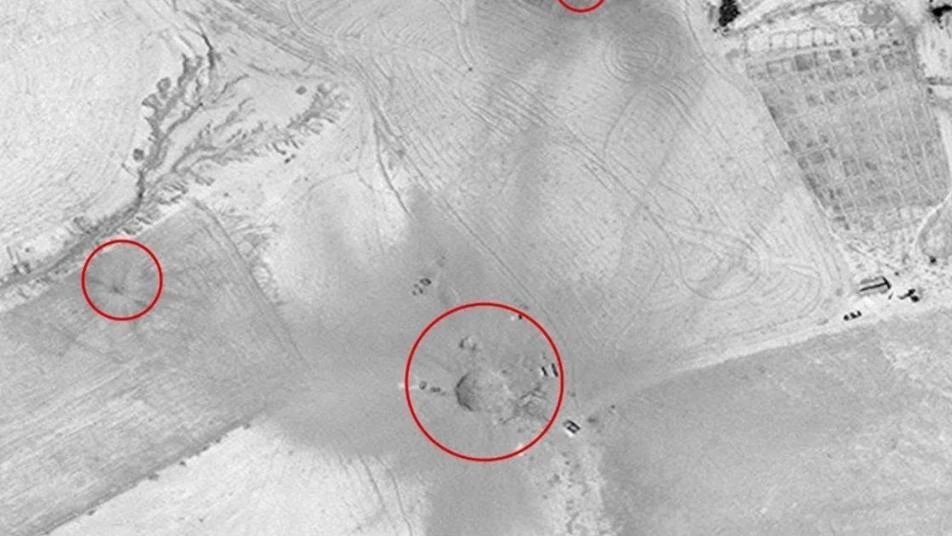The coalition apparently provided approximately US$80,000 to victims of a January 2019 attack that killed 11 civilians, including 4 children from the same family. However, Human Rights Watch investigations into 4 apparently unlawful coalition airstrikes in Hasaka governorate in 2017-2018, which killed 63 civilians and damaged and destroyed property, resulted in no compensation or payments to victims. On March 23, the coalition and the Syrian Democratic Forces (SDF) announced that they had seized control of the last ISIS pocket in Syria.
“While active fighting against ISIS may be over, civilians harmed by coalition strikes are still suffering,” said Lama Fakih, deputy Middle East director at Human Rights Watch. “The coalition should extend the payments made in January to civilians harmed in other actions in Syria.”
The coalition has not thoroughly investigated the attacks that killed civilians or created a program for compensation, “condolence” (or ex gratia) payments, or other assistance to civilians who suffered harm from coalition operations. The US Defense Department has attributed the lack of such payments to “practical limitations” and “limited US presence, which reduces the situational awareness required to make ex gratia payments.”
The condolence payments following the January 3 air attack in al-Khushkieh, Deir ez-Zoor show that the coalition can provide prompt assistance to affected families. These payments were agreed upon after a January 28 meeting of members of the coalition and the SDF with representatives of the families, local officials, and leaders from the Shu’eitat tribe, a prominent tribe in Syria, according to local officials, residents, and local news reports.
Human Rights Watch conducted field investigations in February for four coalition airstrikes from 2017 and 2018 in northeast Syria that resulted in the deaths of several dozen civilians. One airstrike may have been carried out by the Iraqi air force, a coalition partner that has also conducted unilateral strikes.
Three of the strikes appeared to be unlawfully indiscriminate, not distinguishing between military targets and civilians. The fourth appeared to cause disproportionate civilian harm compared to the expected military gain. None of the victims’ relatives said they received payment or assistance. On May 29, the coalition responded to Human Rights Watch inquiries, indicating that it had not assessed civilian casualties in three of these strikes but would. It said it had opened an assessment into the June 12, 2018 strike.
“That strike took most of our men,” said a woman whose husband and sons died in an August 2017 attack on a mosque. “They died, and now their women and children are left to fend for themselves. The women without husbands are living together, and we have no one to support us. The few men that are left try to get a job but it is very far and very difficult.”
The US and some other coalition members have made payments to victims of military operations in Afghanistan and Iraq, not as compensation for wrongdoing but as a voluntary gesture to ease civilian suffering. They are referred to as condolence or ex gratia payments, to emphasize that there is no legal obligation to make them. While the US Congress authorized the Defense Department in the annual National Defense Authorization Act (NDAA) to make condolence payments to civilians in Syria in December 2016, the process for making claims has not been defined.
The US should promptly develop a standardized condolence payment process and conduct outreach as feasible with affected communities to explain and publicize the process. The process should allow safe and convenient avenues to submit claims in the person’s preferred language and should identify local partners as facilitators. Condolence payments should reflect the circumstances, needs, and preferences of affected civilians. Options may include public acknowledgement, apologies, monetary payments, and livelihood assistance.
No other coalition member has apparently provided compensation or condolence payments in Syria, despite some acknowledging their strikes killed civilians. The United Kingdom maintains that its strikes in Raqqa and Mosul did not harm civilians. Australia only recently acknowledged civilian casualties in its airstrikes in Iraq. This raises concerns about the extent to which coalition forces are adequately tracking and assessing civilian harm, and whether lessons are being learned to prevent and mitigate future civilian harm.
Coalition members should coordinate their efforts to create a unified system to track, assess, and investigate reports of civilian casualties and to provide prompt and equitable condolence payments and other forms of amends, Human Rights Watch said. In cases in which coalition forces are found to have committed laws-of-war violations, appropriate compensation should be swiftly paid to the victims or their families.
“For the civilians who suffered under ISIS rule to rebuild their lives, the coalition should include condolence payments to those families who were harmed by their military operations,” Fakih said. “Providing victims of airstrikes with some help for their suffering would be an important step.”



التعليقات (0)